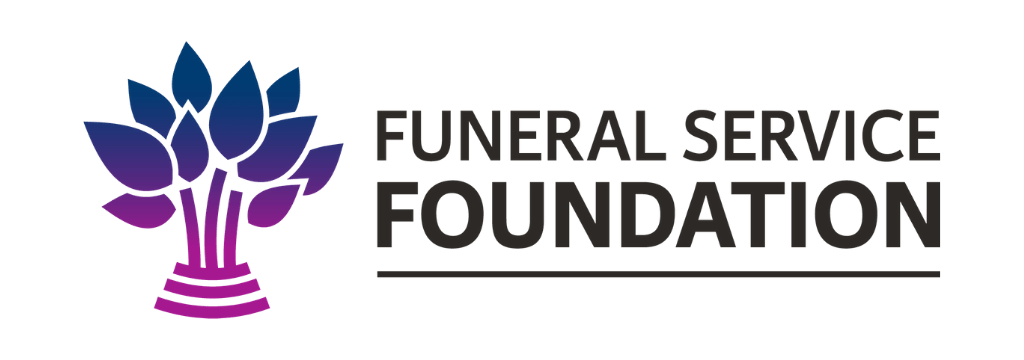4 Habits of Remarkably Likeable Funeral Directors
Article by: Jessica Koth (originally published on the FuneralOne blog)
I’ve had a chance to meet a lot of funeral directors throughout the country and even around the world. So when I was asked to write a blog about what makes funeral directors likeable, I really had to stop and think.
It’s not that you’re not likeable. In fact, having the chance to meet and get to know many of you in a way that the average funeral consumer doesn’t, I actually like funeral directors a lot.
I had to take a step back and reflect on my personal encounters with funeral directors outside of my professional life with NFDA.
What is it that separated the funeral directors people really liked – the ones who made funerals, as difficult as they may be, as bearable as possible – from the ones they did not like?
The more I thought about it, being likeable boils down to a Latin phrase I learned in college (if you were educated by Jesuit priests like I was at Marquette University, you’ll understand this): cura personalis, which translates roughly to “care for the entire person.”
The philosophy of cura personalis, as it is applied by educators in Jesuit institutions, means that each student is treated as a unique individual. Teachers are called to provide individualized attention to the needs of each student, while respecting his or her unique circumstances and concerns, and appreciating his or her particular gifts and insights.
Jesuits are liked and respected the world over for their approach to education and I believe that cura personalis plays a key role in that. So how does this all apply to funeral service? Perhaps if funeral directors put cura personalis into practice in their work, they may become even more likeable.
How can you become a remarkably likeable funeral director among your families and community? It’s easy!
Just incorporate these 4 easy habits when working with your families, and before you know it, you’ll be the friendliest funeral director in town!
1. Get to know me and my loved one.
When my family has experienced the death of a loved one, we’ve been deeply grateful – and have really liked – the funeral directors who showed they care by making time to get to know us and our loved one.
When you sit down for the arrangement conference, there is basic information you have to obtain for the death certificate, obituary and other paperwork. It’s something that has to be done; there’s no way to avoid it.
The thing is, my loved one means more to me than their date and place of birth, the names of his or her parents and their occupation.
I know you’ve heard this a million times from people who have far more expertise in this profession than I, but ask me about my loved one, who he or she was and why they mattered to me. Ask me what I won’t forget about him or her and how I want to remember them. Let me tell you about my loved one in a way that doesn’t involve facts and figures and vital statistics. Let me talk and share their story.
2. Give me time.
The time in between the arrangement conference and the visitation or funeral is quite short. It’s enough to make any event planner’s head spin. I know you want decisions to be made as soon as possible so that you can begin the long list of tasks that you need to accomplish.
Following the death of a loved, some people become incredibly efficient. They can make decisions about the type of service they want quickly and easily because, in the midst of the chaos, planning a funeral is one thing they can control.
On the other side of the coin, some people become so overwhelmed by their grief and the enormity of the choices that lie before them that making decisions becomes difficult. Have patience with those people.
I know it’s sometimes difficult to have a family waffle on whether they want the Tapestry Rose or Renaissance Rose casket. It’s challenging to have to explain things two, three, even four times. It’s not easy to think that all of the decisions have been made only for a relative to have a change of heart about the scripture verse they want printed on the memorial folder.
Allow the family the space they need to make sure they’re planning the service that will be most meaningful. Don’t make them feel rushed or pressured to make a decision. Don’t allow them to walk away unless they’re completely happy and comfortable with their choices.
3. Be wholly present.
You know those days in the funeral home when things are really, really slow and you have only one family to serve in a given week? You reach down to the very bottom of your being and give that family the works. You’re there with tissues or a glass of water. You offer a kind word or an encouraging smile that helps a widow endure a long line of people waiting to offer condolences. The wastebaskets in the bathroom never get more than half-full. You deftly navigate complicated family dynamics. You’re standing at attention near the back of the room, ready to spring into action whenever you might need to be of assistance.
Your business isn’t always like that – focusing on only one family at a time. There are weeks when you’re quite busy. It can be challenging to make one family feel special when you’re worrying about tomorrow evening’s visitation.
But you have to dig deep. It’s not impossible to be wholly present to every family you serve, so make them feel like they are the only family you’re serving all month.
4. Be passionate.
Have you ever been to a retail store in which the clerk seemed bothered that you asked for help finding the size you need? Has a waitress ever sighed when you asked for more coffee? You know it’s more than just a bad day. You know it’s more than them being very busy. They really don’t want to be there. They are unhappy in their job and it shows.
People who truly enjoy what they do – and have a passion for their career – can put on a smile and provide great customer service even on the toughest days.There’s no doubt that you work in a challenging business. It’s unpredictable and stressful. The needs and wants of families are evolving rapidly. You often wear multiple hats and aren’t just a funeral director (especially if you work in a small mom-and-pop firm). You’re expected to be on call 24/7.
Working with the dying, the dead and the bereaved requires 100 percent commitment at all times. These families need you to be their port in the storm. If you aren’t ready to step up to the plate every single moment of the day, you’re in the wrong business.
They like me, they really, really like me!
I don’t know that I’ve offered any earth-shattering insights about what makes a funeral director likeable, but I really do think that there’s something to this cura personalis philosophy.
In my time with NFDA, I’ve read a lot of articles and heard a lot of people talk about ways funeral directors can inspire loyalty among the families they serve. It’s not rocket science; it’s common sense. It’s adhering to the “Golden Rule” of treating others as you want to be treated.
The advice seems to boil down to cura personalis – taking time to care for each family as a unique group of people, distinct from the one you served yesterday… and the one you’re going to serve tomorrow.
 ABOUT THE AUTHOR
ABOUT THE AUTHOR
Jessica Koth is NFDA’s public relations manager and has been on staff for more than six years; her career in public relations spans nearly 15 years. In addition to managing NFDA’s media relations efforts she serves as the staff liaison to the Pursuit of Excellence program, manages NFDA’s social media presence, edits the NFDA Bulletin, assists members with communication issues and coordinates many other communication projects for behalf of NFDA.




